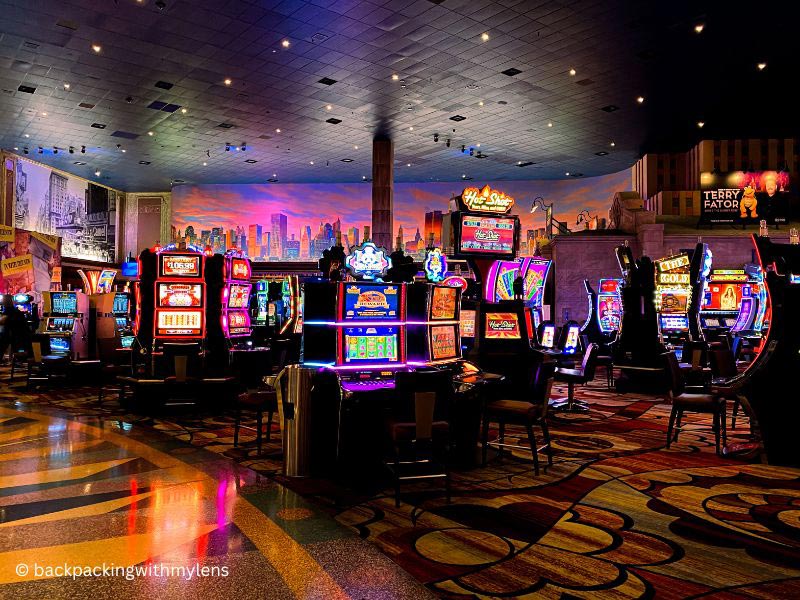
Gambling games have captivated for years a diverse audience, delivering not only the thrill of chance but also a tailored experience crafted for different kinds of players. Ranging from strategic players who succeed through calculation and skill to recreational players in search of entertainment, casinos understand the nuances of their audience and create games that meet these varied preferences. casinos en ligne fiables
In delving into the universe of casino gaming, we discover a variety of choices that attract players of all kinds. High-stakes poker tables attract competitive players, while vibrant slot machines attract individuals in search of instant gratification. Whether it’s about the allure of winning big or simply savoring the community feeling, casinos create their game offerings to ensure that all players find a place where they feel comfortable and engaged. Understanding how these games are tailored to different kinds of players can enhance not only our enjoyment of them but also our approach to choosing which games to play.
Comprehending Player Groups
In the varied world of casino games, participants can be grouped into distinct kinds based on their drives and likings. These gamer kinds range from the relaxed and communal gamers, who enjoy the entertainment value and interactive connections that gambling provides, to the more tactical and analytical players, who seek to maximize their odds and gains. Understanding these various player types is essential for casinos to customize their offerings and create engaging settings.
One frequent category is the communal player, who sees casino games as a form of group interaction and enjoyment rather than a serious gambling activity. These gamers often enjoy games that encourage participation and friendship, such as group-based games. Their attention is on the experience rather than the outcome, so dynamic environments and collective moments are what they value the most.
On the opposite end of the scale, strategic players are inspired by contest and the search of skill. They tend to gravitate toward games that require strategic thinking and strategy, such as blackjack, where their skills can influence the outcome. This category often interacts with the games on a deeper level, utilizing insight and approaches to secure an edge. Comprehending these incentives allows casinos to build atmospheres and game selections that cater to each player’s individual preferences.
Strategies for Game Design
Casino games are created with varied player types in mind, utilizing multiple strategies to attract and engage them. For casual players, the focus is on simplicity and ease of understanding. Games like slot machines are often aesthetically pleasing with simple mechanics. This enables players to enjoy the gameplay without a difficult learning curve, fostering an welcoming atmosphere. The vibrant hues, engaging audio, and themes create a fun environment where players can quickly get immersed and enjoying themselves.
For strategic players who enjoy a more profound level of engagement, games such as Texas Hold’em and 21 offer complexity and strategic elements. These games incorporate strategy and tactical choices, attracting to players who thrive on competition and want to exercise their cognitive abilities. The design of these games regularly includes complex rules and mechanics that challenge players to hone their skills and develop strategies over time, resulting in a rewarding experience for those who appreciate perfecting the game.
Furthermore, social players are catered to through games that highlight engagement and community. This includes live casino options and multiplayer games, which foster a sense of community among players. The design of these games typically incorporates chat features and communal aspects, allowing players to connect and exchange insights. By creating an environment where interaction is encouraged, casinos can effectively engage social players, making the gaming experience more pleasurable and memorable.
Improving Participant Satisfaction
Casino games have advanced notably to offer a significantly immersive environment for gamers. Game developers focus on immersive images, dynamic audio effects, and novel gameplay features that engage players into the gaming environment. By leveraging digital advancements, such as VR and enhanced reality, casinos ensure that gamers feel as if they are part of a exciting atmosphere, enhancing in addition to the enjoyment of the games but also the complete enjoyment of being in a casino.
Social interaction is another critical element in improving player experience in casino games. Numerous titles are crafted to facilitate engagement among participants, whether through multiplayer formats or social tools. This interactive component is attractive to players who like interacting with fellow players while engaging, developing a sense of community. Moreover, social features can include ranking systems, contests, and rewards for collaborative gaming, which attract ambitious gamers and inspire them to return for further.
Lastly, tailoring plays a pivotal role in customizing the engagement for various player types. Betting companies and software designers analyze participant habits and tastes to provide customized game suggestions and benefits. By comprehending the individual interests of participants, gaming establishments can provide customized deals, rewards, and new titles that resonate with each participant, thus improving their total enjoyment and commitment to the gaming venue.